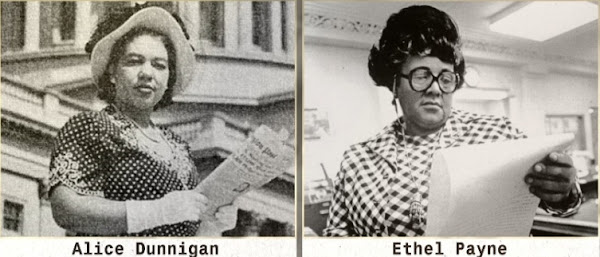The Howard University Moorland-Spingarn Research Center (MSRC) received a $2 million grant from the Jonathan Logan Family Foundation to support the preservation and digitization of the Black Press Archives, a newspaper collection of titles by Black journalists, editors and publishers. MSRC worked in partnership with the Center for Journalism and Democracy to secure this critical gift, and the center will be committing additional funds to the project to ensure a significant number of publications in the Black Press Archives are available in an online repository for worldwide research.
“Documenting and telling our stories has always served as a source of truth and power for the Black community in the United States and across the African diaspora,” said Howard University President Wayne A. I. Frederick. “The Black Press Archives is a unique and deeply important resource for Howard University faculty and students as well as the broader research community. We are very pleased to receive the support of the Jonathan Logan Family Foundation to digitize the archives – an important milestone that advances Howard’s mission to share the story of the Black experience with the world.”
The Black Press Archives represents more than 2,000 newspaper titles from the United States, Africa and the African diaspora. It has 2,847 microfilm reels of newspapers, totaling over 100,000 individual issues of newspapers. The collection includes complete files of Black papers as well as the records of Black editors, publishers and journalists.
“I am excited for MSRC’s partnership with the Center for Journalism and Democracy and grateful for the generous support of the Jonathan Logan Family Foundation,” said Moorland-Spingarn Research Center Director Benjamin Talton, Ph.D. “Black newspapers and journalists are essential pieces in the history of African-Americans and Black people globally. One cannot fully tell the story of the Black experience without the Black press. I am proud to have MSRC at the center of sharing that legacy. Our digitization project will bring greater equity in access to this important resource. For the first time ever, those who lack the financial means and time to travel to the Moorland-Spingarn Research Center will be able bring this history into their classrooms and homes through our online database.”
The Jonathan Logan Family Foundation supports organizations that advance social justice by empowering world-changing work in investigative journalism, documentary film, arts and culture, and democracy. The foundation has supported numerous other social justice archive projects, including digitization of photographer Ernest C. Withers civil rights photo collection and production of a full-length documentary on Withers; a production of “And Then They Came for Us,” a full-length documentary about the internment of Japanese-Americans during World War II; and production of the “Making Gay History” podcast, which draws on a decades-old archive of rare interviews that bring LGBTQ voices to life.
“We were immediately intrigued when Ms. Hannah-Jones and the archives scholars at Howard described the treasure trove of Black press materials in its collection – from the legendary Chicago Defender and Amsterdam News, Los Angeles Sentinel and Washington Afro-American, to global publications as well as the records of Black publishers, editors and journalists,” said President and CEO of the Jonathan Logan Family Foundation Jonathan C. Logan. “Nikole herself has relied on this archive in her own work. The cataloguing and digitizing of this amazing collection will make it possible to share this indispensable resource with the world – students, journalists, scholars – everyone, anywhere. JLFF is so proud to partner with Howard to help bring to life the reporting and stories that, in many cases, would be lost to history but for the Black press.”
The grant will also be used to hire staff, purchase equipment and supplies, and fund scholarships for students and scholars at HBCUs to visit the on-site collection. The Jonathan Logan Family Foundation’s generous support will provide more than half of the overall budget needed to complete the archival project.
The Center for Journalism and Democracy is seeking additional support for this pivotal project. The center’s founder, Nikole Hannah-Jones, also serves as the inaugural Knight Chair in Race and Journalism at the Cathy Hughes School of Communications at Howard University. The center will officially launch in Fall 2022.
“For generations, the stories of Black people in America were not deemed worthy of telling by the newspapers delivered to the homes of white people. Those journals documented only one version of the lived American experience,” said Hannah-Jones. “The Black press served – and continues to serve – to celebrate, commemorate and honor Black lives in this country and to push this nation to live up to its highest ideals. Howard University has always understood the value and necessity of uplifting, documenting and fighting for Black lives, and the students we will support through the center will utilize and learn from this impressive archive. I am deeply grateful that the Jonathan Logan Family Foundation has chosen to fund the processing and digitization of the Black Press Archives, which are a tremendous gift not just to Howard but to the nation and the world.”
MSRC is currently housed in Howard’s storied Founder’s Library. In 2015, MSRC began its Digital Production Center to manage the digitization and digital preservation of its extensive archive of African-American history. Through digital preservation, MSRC hopes to better support the preservation of the global Black experience in perpetuity. The grant also will be used to support scholars and cover the costs of research.




